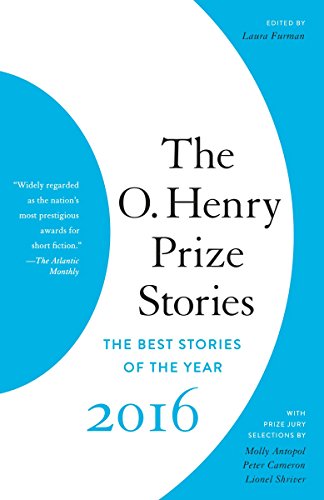Bargain Bin Books
The O. Henry Prize Stories 2016 (The O. Henry Prize Collection)
Couldn't load pickup availability
Author: Furman, Laura
Color: Sky/Pale blue
Features:
- Anchor Books
Number Of Pages: 400
Details:
Product description NA
Reviews:
“Those who still cling to the promise of the short story can be glad that there is still someone willing to do the heavy lifting.” —Los Angeles Times
About the Author:
Laura Furman, series editor of The O. Henry Prize Stories since 2003, is the winner of fellowships from the Guggenheim Foundation and the National Endowment for the Arts for her fiction. The author of seven books, including her recent story collection The Mother Who Stayed, she taught writing for many years at the University of Texas at Austin. She lives in Central Texas. Excerpt. © Reprinted by permission. All rights reserved. Introduction This year, as always, when the reading got under way for The O. Henry Prize Stories 2016, the stories in the just-published 2015 collection whispered in my ear that this would be the year when I wouldn’t find another twenty worthy of succeeding them. The haunting prediction held for a while, and then the first right one appeared. This year, Ron Carlson’s “Happiness” reassured me that once again there were more wonderful stories to discover for The O. Henry Prize Stories 2016. A story with that title might be greeted with skepticism. Happiness? Really? The word’s in our Declaration of Independence but most of us can’t say what it means to be happy, though we know the feeling when it’s there and we miss it when it’s gone. Carlson’s characters—the narrator, his brother, and two sons—are meeting at the family’s mountain cabin in October to secure the place for the winter. When the narrator and his son stop for the night in Wyoming, it’s five degrees above zero and there are pickup trucks parked in front of Wally’s, home of the Wally Burger. The narrator knows that the “smart shepherds and collies” that would in warmer weather be in the trucks are in the motel’s warm rooms. Game three of the World Series is on TV. The narrator lays out these simple and ordinary conditions as if he were describing a moment in paradise. The unhurried pace of the narration speaks of happiness as the narrator luxuriates in his modest way. He isn’t about to rush anything, not his descriptions of the weather, land, trees, water, trout, or deer. Even the cabin’s copper Levelor blinds have their moment. Happiness might glow and inspire, in memory and in its presence, but it doesn’t last, a truth here not stated but implied by the aesthetics of the story. The one female character, the boys’ mother, isn’t there, though she’s present. She and the narrator are divorced, and we don’t know why or when. A letter she’s written to the narrator, which he receives from his son in the course of the story, is protected from the wet and treated with the same care as any other object. When the narrator tells family stories he includes her, calling her “your dear mother.” Their parental love, which is also a love for each other, reveals itself in the narrator’s careful patience as he instructs their sons. By the time the vivid, beautifully written story reaches its end, the reader realizes why the narrator is determined to teach his sons how to take care of the cabin and wants them to know how to find a certain place on the land. The reason is more often the cause for tears and not happiness, though Carlson’s “Happiness” would have it otherwise. Joe Donnelly’s “Bonus Baby” brings us to the ball game but from inside the very center, from the pitcher’s point of view. The story takes place during a game—not just any game but a possible perfect game. We see how the pitcher’s life has led him to this moment. The pitcher’s tics, familiar to any baseball fan, are his way of controlling what little he can in the uncontrollable game and in his life. He uses his tug, wipe, and touch to his cap to “harness energy and deliver it.” “Bonus Baby” is in the mythic tradition of Bernard Malamud’s The Natural, in which baseball is treated as a variant on the Trojan War and the players like demigods and great warriors—but in Donnelly’s vision t...
EAN: 9781101971116
Release Date: 06-09-2016
Languages: English
Item Note: Good shape with typical wear. Has a remainder mark. Paperback Used - Very Good Ships fast! 2016
Item Condition: UsedVeryGood
Binding: Paperback
Share


